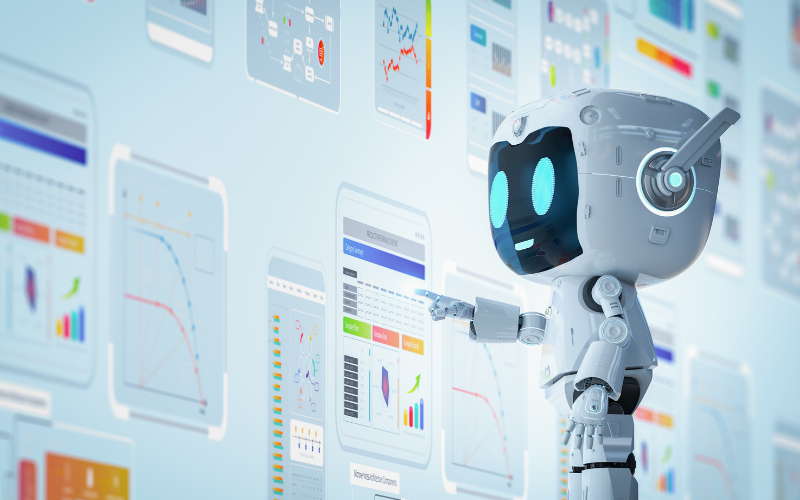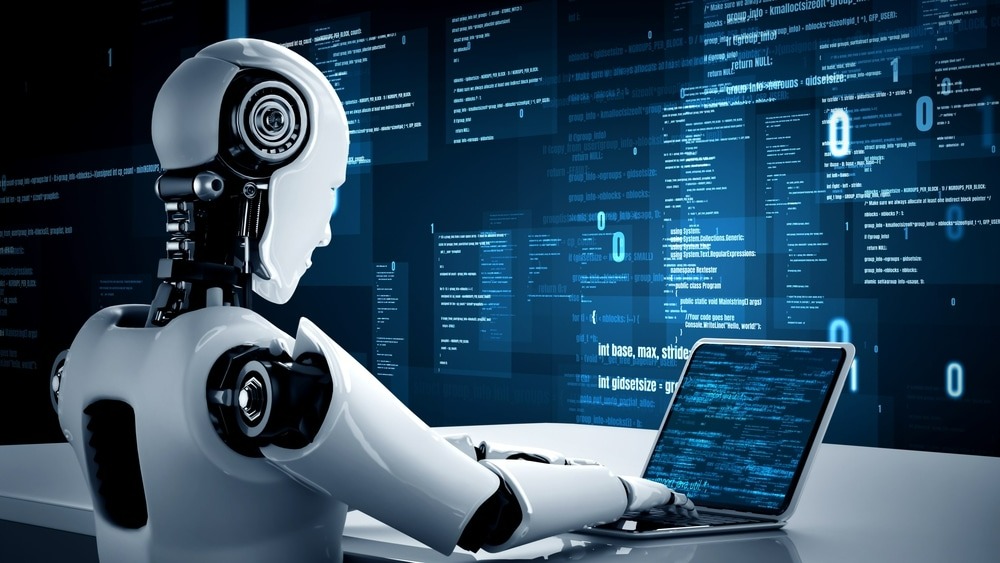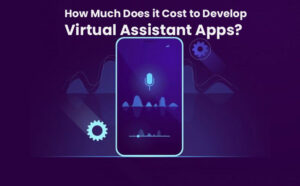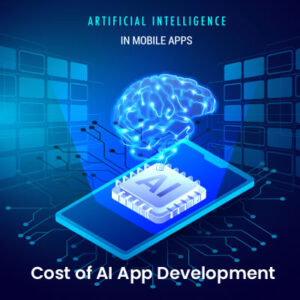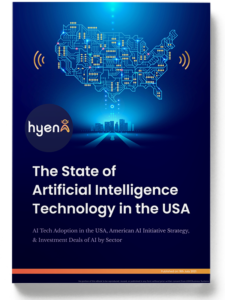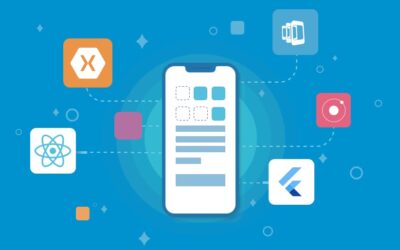How AI Improves Software Development Efficiency and Innovation?
How AI Improves Software Development Efficiency and Innovation?
Artificial intelligence (AI) is transforming the software development industry, automating and innovating processes. Not only are processes being created through the application of AI at different stages of the software development process, but dynamic and smart computer programmers are also being created. In this article, you can find the top features and functionalities of AI in software development and the benefits of using AI for software development.
Let’s get started!
Key Features of AI in Software Development
1. Independence of Code Generation
Code recommendations or procedure recommendations on natural language inputs are provided by AI software such as GitHub Copilot and Amazon Code Whisperer.
2. Bug Detection and Code Reviews
Inefficiency, bugs, or safety vulnerabilities can be identified by predicting indicators from AI programmers. Code review is performed by Deep Code or Codacy-type tools.
3. Forecasting Analytics
Historical project metrics are applied by AI to timelines, resource estimates, and project bottlenecks. It assists in improved sprint planning and risk estimation.
4. Smart Testing
Test case generation, test case selection, and regression testing are carried out by AI. AI sets the priority of test cases with machine learning and eliminates duplicates with automated tools such as Testin and Apply tools.
5. Natural Language Processing
NLP translates the specs into English that humans can read so that they can be translated into test cases or functional specifications according to AI models.
6. DevOps Automation
AI is incorporated into CI/CD pipelines, which roll back automatically, deploy error predictions, and iteratively transform infrastructure in real-time.
Benefits of Using AI in Software Development
- Increased Efficiency
Different stages of the software development life cycle (SDLC), like coding, debugging, testing, and deployment, are streamlined using AI. Machine learning-based products can generate boilerplate code itself, reorganize a body of code, and even suggest real-time optimization suggestions. It releases the developer’s time to spend on less mundane tasks and allows the developer to deploy features and updates more rapidly. GitHub Copilot will fill in lines or even functions in a matter of keystrokes or lines of comments and speed up development.
- Cost Savings
With automated growth by recursion employing artificial intelligence, overhead in terms of enormous sets or vast amounts of manual testing is reduced to the bare minimum. Bug or security defect detection beforehand also prevents wasteful repair during deployment. Furthermore, with deployment, maximum possible resource utilization (e.g., maximum possible resource utilization of cloud computing expense) provides resource-conscious utilization in general. AI-enabled test environments can reduce QA costs by up to 40% by reducing test runs and builds.
- Enhanced Code Quality
AI tools can audit millions of code patterns, and bad coding, bugs, and security flaws can be identified and reported. Continuous feedback implies that code quality is outstanding throughout the entire development life cycle, not just code review. Tools like Deep Code or SonarQube, which utilize artificial intelligence for static code analysis, offer industry best practices and histories of previous projects’ recommendations for code fixes.
- Accelerated Innovation
By delegating routine and time-consuming tasks to AI, more developer time can be spent on creative problem-solving, feature creation, and planning. This has the potential to create a culture of innovation in which it is easier for teams to experiment and innovate more and get new ideas to market more rapidly. Instead of spending hours writing unit tests, developers can let AI handle the task and spend the hours, say, on building new product features or researching new tech stacks.
- Improved Decision-Making
AI provides fact-based insight from project history, real-time performance data, and forward-looking insights. This enables better planning, resource organization, and architecture decision-making, enabling teams to respond to threats and opportunities sooner. A future AI dashboard anticipates an overrun in a sprint based on historical trends and triggers correct team rebalancing ahead of time.
- Continuous Improvement
Machine learning algorithms improve constantly as they learn from the results of earlier development. The process of learning makes AI tools progressively more precise and useful each day, hinting at better code, better test coverage, and enhanced performance optimization.
A deployment AI system learns from previous system failures and can automatically change or suggest precautionary measures for the next release.
These collective advantages altogether are a paradigm shift in software development, testing, and deployment. Those companies that use AI to maximum advantage will be able to make shorter time-to-market, sound software, and happier development teams a success.
Development Cost of AI Integration
The cost of integrating AI into software development varies depending on the complexity, scope, and deployment scale:
- Basic AI tools (plug-and-play): $1,000 – $10,000 annually
- Custom AI model development: $50,000 – $200,000+
- AI-enhanced platforms: $25,000 – $100,000
- Team training and upskilling: $10,000 – $50,000
The Future of AI In Software Development
AI-Powered Autonomous Coding:
During the next few years, AI systems will transition from assisting coders to generating well-reasoned chunks of code automatically without human intervention. With the advancement of large language models (LLMs) and reinforcement learning, AI can use advanced requirements of projects, comprehend business regulations, and create structured, commented code with minimal human input.
Impact: This will reduce development time and human mistakes considerably.
AI role in Autonomous coding: AI can generate complete web applications or server-side systems from a low-level natural language specification like, “Create a marketplace with user login, product listing, and payment gateway.”
Hyper-Personalized User Experiences:
AI will support true personalization of app UIs and workflows per user in real-time. With behavior data, usage patterns, and context signals (e.g., location, history of preferences, device type), AI will be able to change UIs, provide recommendations, and even dynamically resequencing app steps.
Impact: Users will enjoy more natural, compelling, and effective experiences.
What AI can do in software development: An e-learning platform powered by AI can dynamically change difficulty levels in questions, recommend content, or switch between learning modes based on the speed and comprehension of a user.
AI-Augmented Dev Teams:
Dev teams in software development will be augmented with AI, such as a virtual project manager or co-developer. It will collaborate with human developers by:
- Recommending architecture
- Auditing pull requests
- Detecting performance bottlenecks
- Controlling deployment workflows
Impact: The team is more alert and responsive, and a manual intervention for a minor operation is avoided.
Benefits of AI in DevOps Integration: A coder writes the function, and AI automatically reports a potential security vulnerability, suggests a patch, and makes a test attempt with modifications in a simulated environment.
Explainable AI in Development:
As AI infrastructure becomes increasingly integrated into development pipelines, demands for transparency and accountability will be mounting. Explainable AI (XAI) will enable developers to see why a model had suggested or inferred something specific, whether an algorithm was being chosen, recoding, or excluding a feature.
Impact: Enhances trust in AI output and regulatory compliance, particularly in highly regulated sectors like healthcare or finance.
Full Lifecycle Automation:
AI will manage the entire Software Development Life Cycle (SDLC) requirement gathering to design, coding, testing, deployment, monitoring, and maintenance. AI will manage workflows, foresee problems before they occur, and suggest improvements on an automatic basis.
Impact: Enables ongoing development and release on an unseen scale with diminished appeal to mass groups.
For instance, AI performs automatic user input translation, bug tracking, patch building, testing, and patch deployment all without or with minimal involvement of developers.
Conclusion
AI is not a tool but is a change driver for software development. It speeds up productivity, innovates, and makes it easier to produce higher-quality software at a lower expense. The more sophisticated technology becomes, the more pervasive its integration into the development process will be, reshaping jobs, re-coding processes, and reaching new levels of efficiency and imagination previously unattained. Ready to future-proof your development process?
Have artificial intelligence optimize your business skills and set your business ahead of the game.
Let’s connect with Hyena, the best AI development company in the USA, India, Dubai, to know more about how AI transforms your software development operations.
